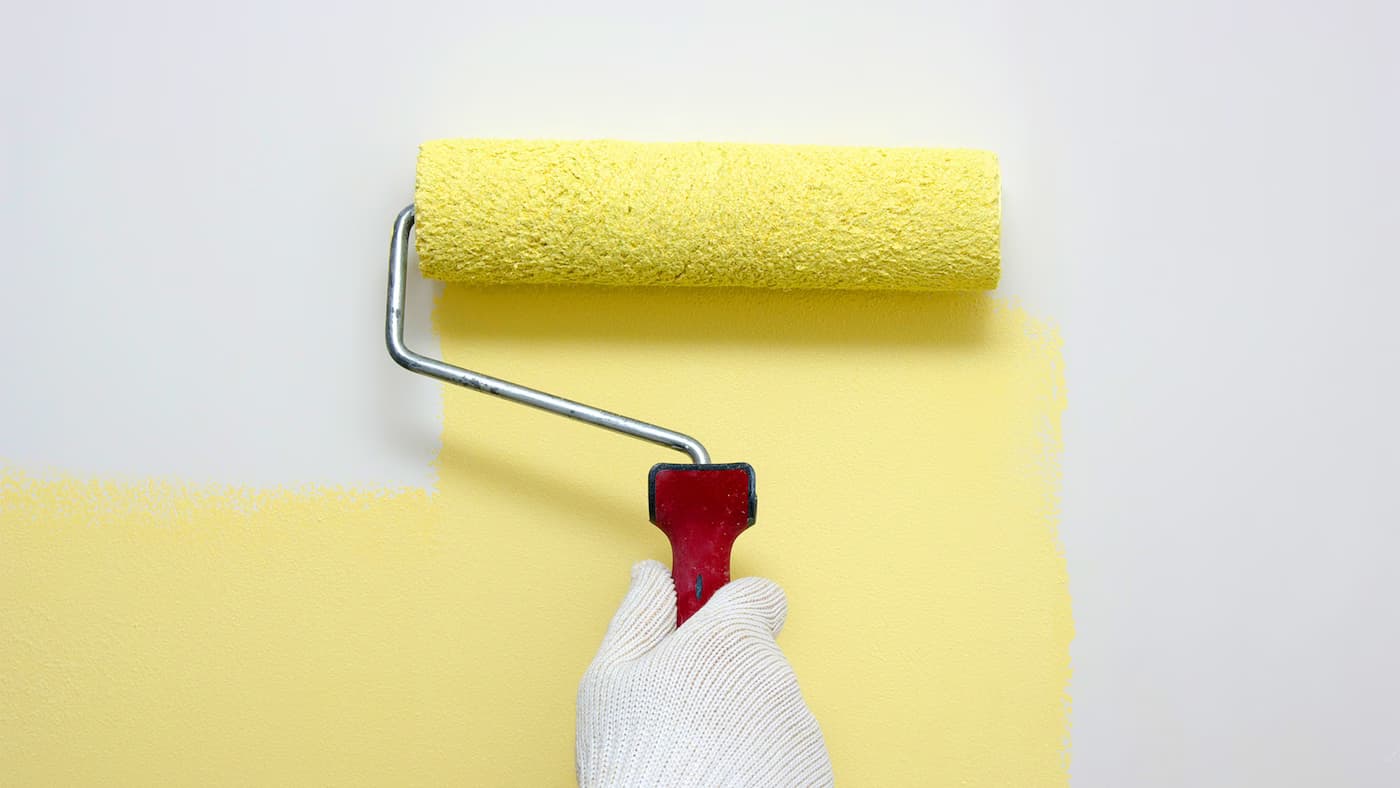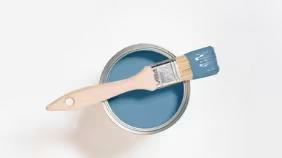
Painting a room? Follow these six steps
Paint like a pro with our step-by-step advice.
1. Prepare your room
Putting aside a few hours to fully prep your room before you start painting will help make your project go smoothly. First, place a cloth or plastic drop cloth on the floor, and remove any furniture. Remove any curtains or blinds, detach electrical cover plates on switches and outlets and remove window hardware (such as sash locks and handles) to avoid ruining your home decor. Finally, remove any doorknobs and tape off the lock at the edge of the door.
2. Prepare your surfaces
Before you open any paint tins, it’s important to make sure all your surfaces are clean and ready to be painted. If you have any gaps or cracks in your walls, ceiling or woodwork, you’ll need to fill these in using a plaster filler such as Fixit Multi Purpose Crack Filler. These areas, as well as any woodwork, will need to be sanded down to create a smooth surface – this will help the Dulux paint to adhere. Don’t forget to wipe down surfaces after sanding to remove any dust – you don't want dust or dirt getting stuck to your freshly painted walls!
3. Paint the ceiling
When you’re ready to begin painting, start with the ceiling. That way, any paint drips will fall onto unpainted surfaces and you can easily wipe them off or paint over them later.
If you’re painting your walls and ceiling two different Dulux colours, you’ll need to ‘cut in’ the corners to achieve a flawless finish. Follow our step-by-step guide to cutting in.
4. Paint the walls
Next, it’s time to paint the walls. This is for the same reason as above – any spray or paint drips can be easily wiped off the woodwork. A clever trick is to overlap the paint a few centimetres or so over the woodwork – this will create a nice clean line when it’s time for the next step.
5. Paint the woodwork
Finally, paint your woodwork. The trick is to start in the middle of the room and gradually work your way out, so you reduce the risk of brushing against newly painted surfaces. For example, you’re more likely to touch a doorframe on your way in and out of the room than you are to brush against a heater or air conditioner. With this in mind, the best order to paint your woodwork is the window frame, windowsill, skirting boards and, finally, the doorframe.
6. Put everything back in place
Once you’ve given the paint plenty of time to dry (we recommend you follow the drying time instructions on the Dulux paint can), you can begin to move furniture back into the room. Reattach any electrical cover plates, window hardware or door hardware you removed and re-hang your curtains and blinds. Finally, make a cup of tea and put your feet up – you deserve it after all that house painting!






